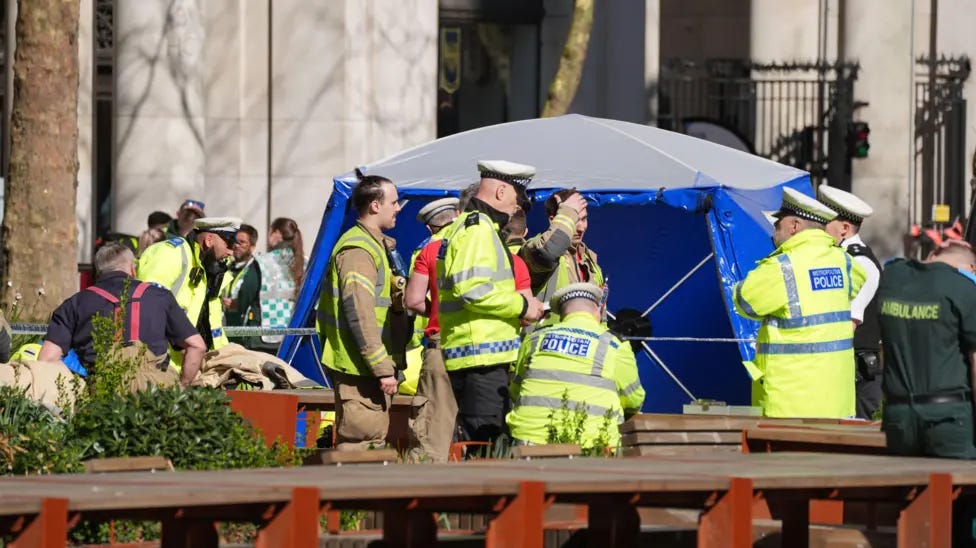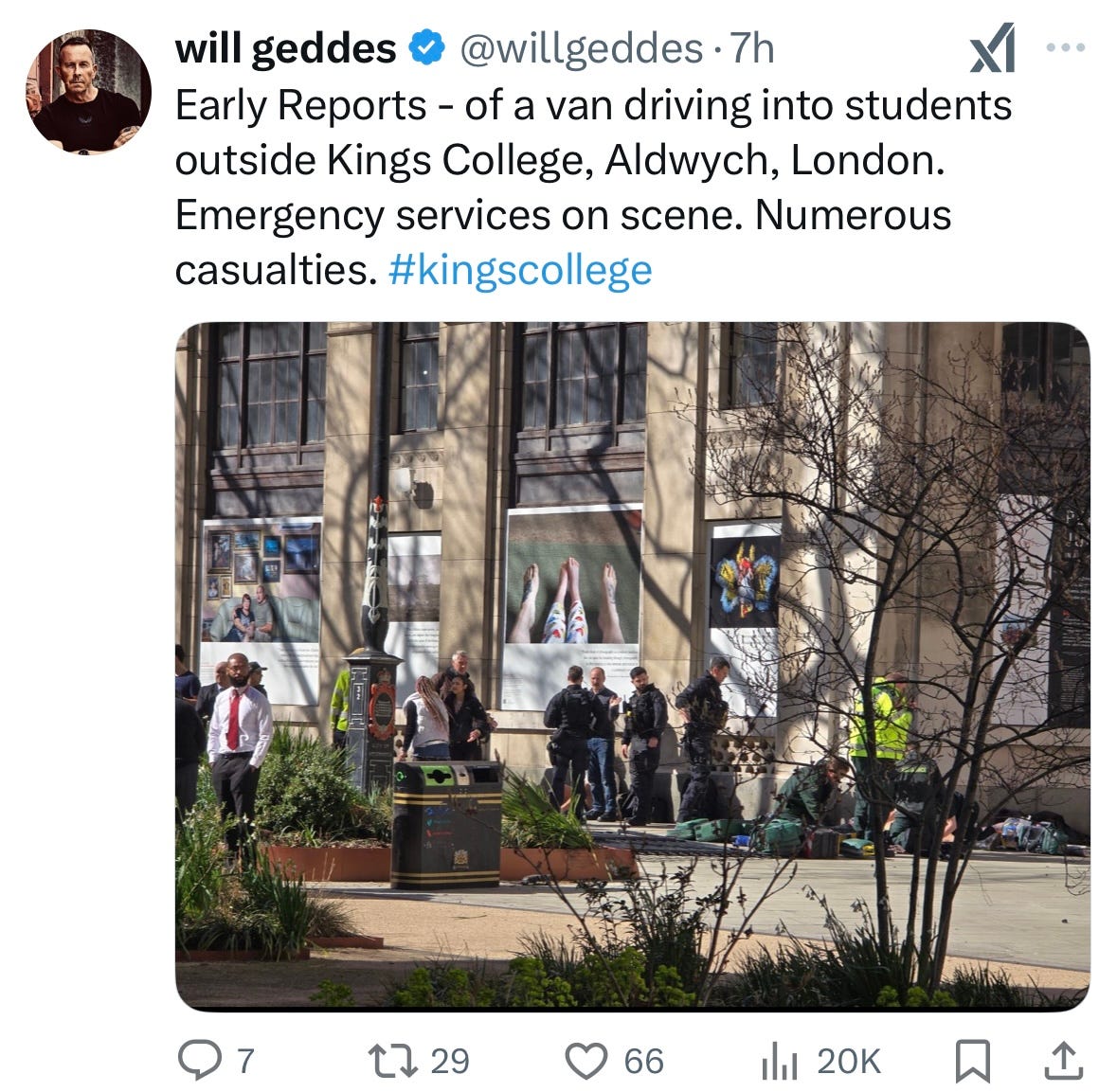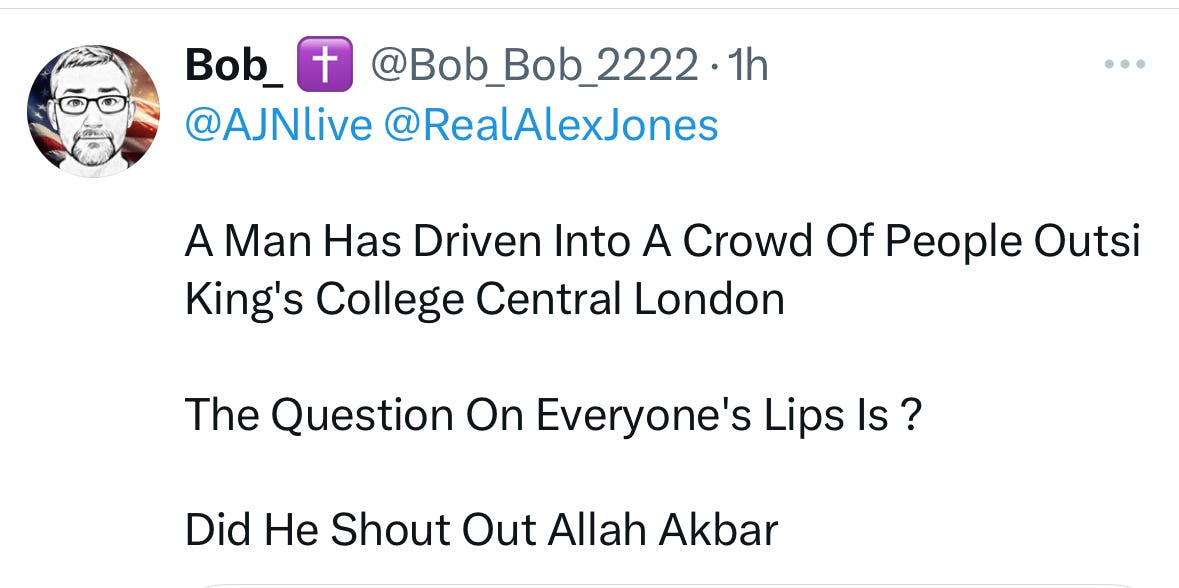Like many of us, my first port of call when I think something has happened is social media. News spreads fast and wide on sites like X before the reporters at the BBC or the Standard have managed to get their ‘scoop’ out there. A witness will tweet a sentence, a friend of a friend will ask what’s going on, a passerby will share a photo of some paramedics, some blue tape, a tarp on the floor.
This morning, a young woman was tragically killed, and three others injured, by a van in a pedestrianised area on King’s College London’s Strand campus. Being a King’s student, I’d originally heard from a friend, who had heard from another friend, who had heard from another friend’s hockey team that something had happened on campus. I’d seen nothing on the BBC, nothing on LBC, nothing on the Standard. Naturally, I went to X.
The earliest post I could find was by user @willgeddes:
The post didn’t tell me much, in fact it told me nothing at all. It was an early report, the bare bones of what had happened; but it was the responses that stuck out to me:
There was nothing in the post that signified the driver’s religion, yet here we are. Assumptions without evidence are often the first things to be shared online following tragedies, and dangerously, since they are the first things out in the world when everyone is searching for answers, they are the fastest to spread.
We’ve seen this before. In July 2024, three young girls were killed at a Taylor Swift dance workshop in Southport. Channel3 Now shared an article containing misinformation about the attacker stating that he was a Muslim asylum-seeker on the day of the attack— before Merseyside Police could share his identity. The article racked up almost two million views on X before it was deleted. Misinformation by outlets such as Channel3 Now led to nationwide riots in the following days; Southport Mosque (among countless others) was attacked, eleven countries issued safety warnings for travel to the UK— over 1200 people were arrested. The attacker turned out to be a Christian, British citizen who was born in Cardiff. But that didn’t matter, the damage had been done, all because the far-right got there first.
But let’s go back to the Strand. A few hours after the incident, the Metropolitan Police shared that the perpetrator was a 26-year-old, who had been charged with causing death by careless driving and drug driving. What do they not mention? His religion, his background, his motive; Scotland Yard have already announced that the incident was not terror related. Regardless, still, as I look on social media now, 6 hours after the incident, the search results for ‘The Strand’ and ‘King’s College London’ are filled with the same rhetoric as they were when the incident had just happened.
There has been no description of the driver other than his age, yet these ‘twitter reporters’ only comment on three things: his religion, his background, his motive. Why?
The simple answer: racism.
Tragedy is utilised to push a narrative. In times of uncertainty, people want answers, people are vulnerable, people will believe any ‘logical’ explanation, even without the facts to back it up. Time and time again, the tragedy of loss of life is undermined by hate. The regurgitation of ideology and speculation removes the focus from the fact that someone’s parents won’t get a ‘good night’ text from their child tonight.
Maybe check what else Keith🏴 on Twitter has posted before you believe what he says. Maybe think twice about sharing an opinion without reading the story. Maybe empathy is the thing to be sharing in these situations. Just a thought.
Subscribe to Mia
Launched 3 months ago
Student Journalist and Storyteller








